Abstract
Prior to 1967, attenuation of influenza virus was achieved by gradually lowering the incubation temperature until optimal growth at 25°C was obtained. The process of attenuation of a Hong Kong strain was modified and considerably shortened. The temperature of incubation was changed abruptly from 35°C to 25°C and a cold variant was selected using the plaque-assay system.
A set of genetic markers was developed for assessing the potential virulence of cold-passaged variants. The cold variant of the Hong Kong strain was temperature-sensitive, acid-labile and produced a small plaque in primary chick kidney cells incubated at 35°C. Additional differentiating biological properties relating to the adaptation of the virus to growth at 25°C and to loss of virulence in a susceptible host are presented.
The cold-adapted variant was found to be relatively avirulent and highly antigenic for mice and ferrets, and virus was recovered from the nasopharynx of infected ferrets during the first 3 days. The virus recovered was still unable to grow well at 41°C (rct/41—), was sensitive to acid pH and produced small plaques at 35°C and larger ones at 25°C.
After a series of plaque purifications, the cold variant showed further loss of virulence to mice, more vigorous growth at 25°C, complete failure to grow at 41°C and good antigenic potency.
The genetic markers were stable in the plaque-purified cold variant after at least 10 consecutive passages either in tissue culture at 35°C, or in mice.
Cold variants of type B influenza virus have a narrower range of temperature sensitivity compared with type A strains. Reduced plaquing efficiency and reproductive capacity occurred at 35°C (rct/35—) with the attenuated type B strains instead of at 41°C as with the type A strains.
Clinical trials with the attenuated Hong Kong strain of influenza virus (A2/Aichi/2/68) have demonstrated the acceptability and immunogenicity of the strain in man.
Full text
PDF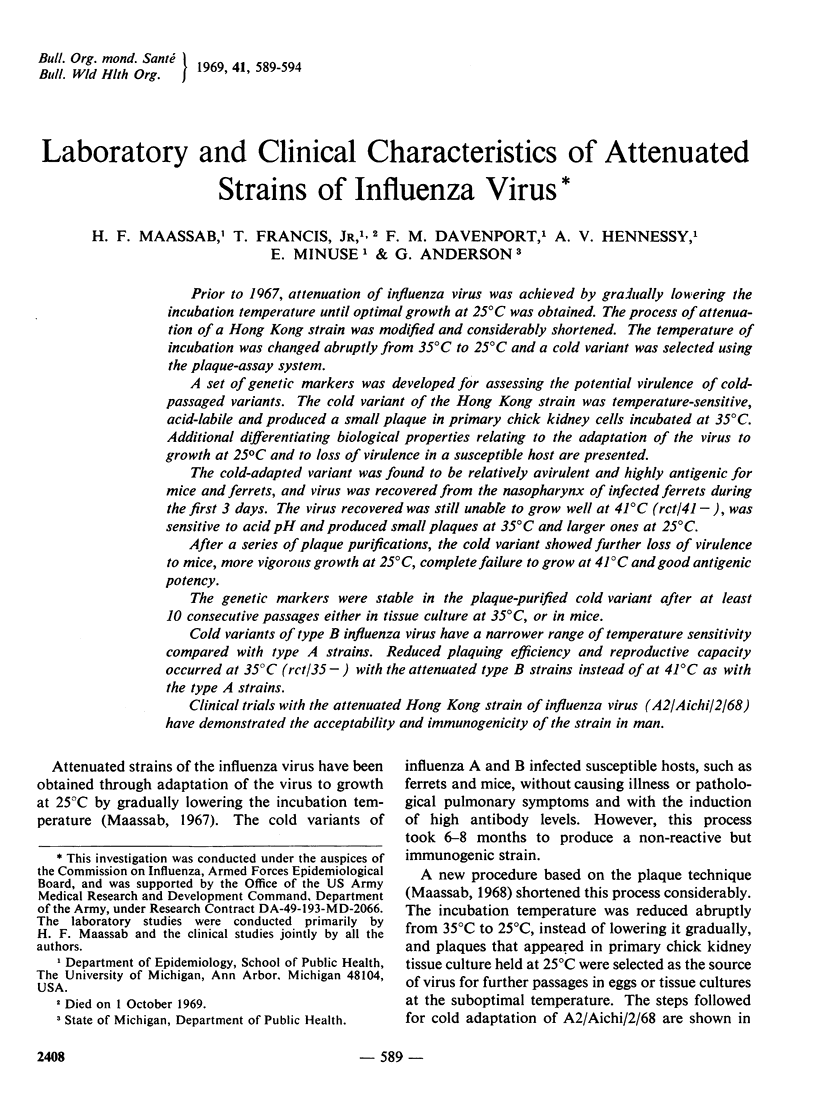

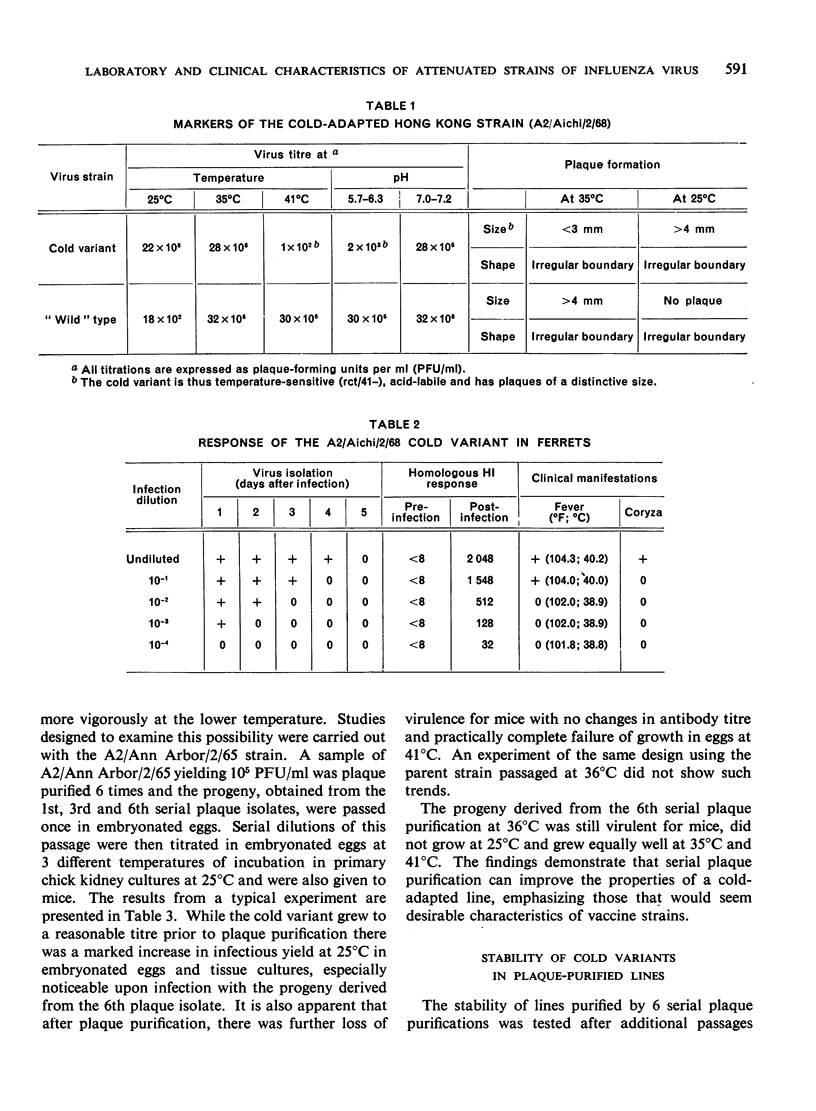
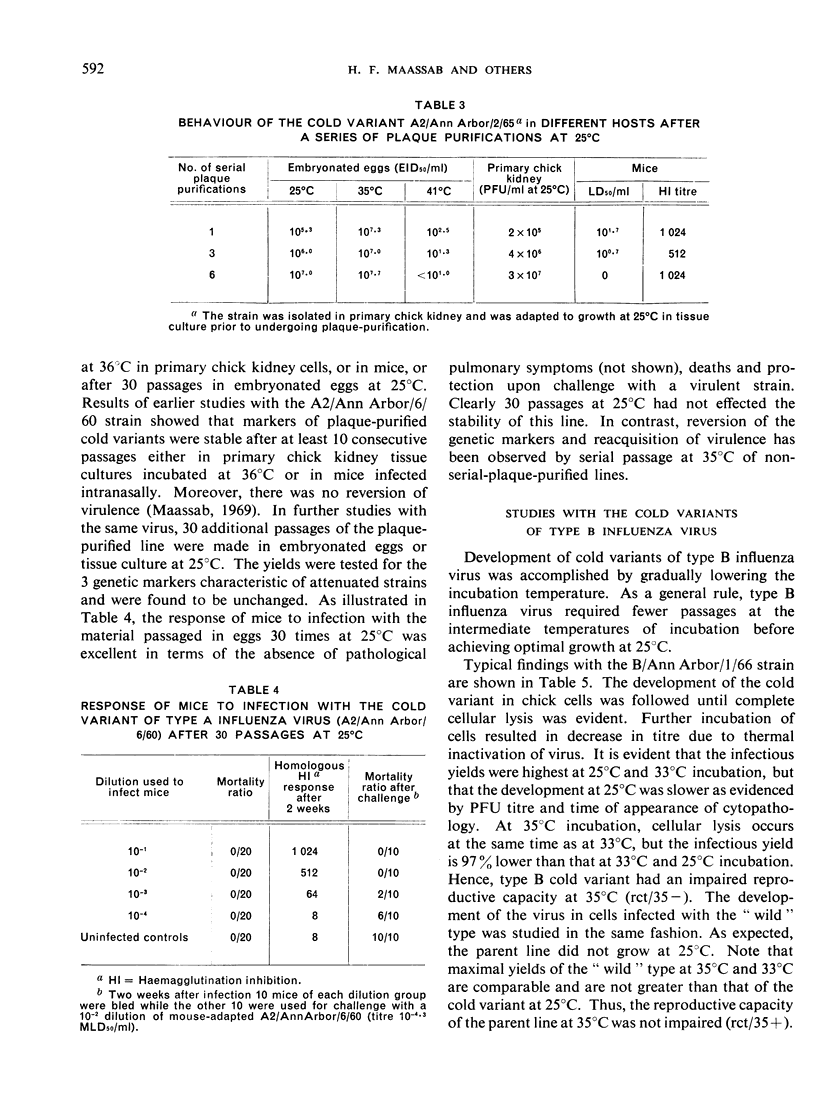
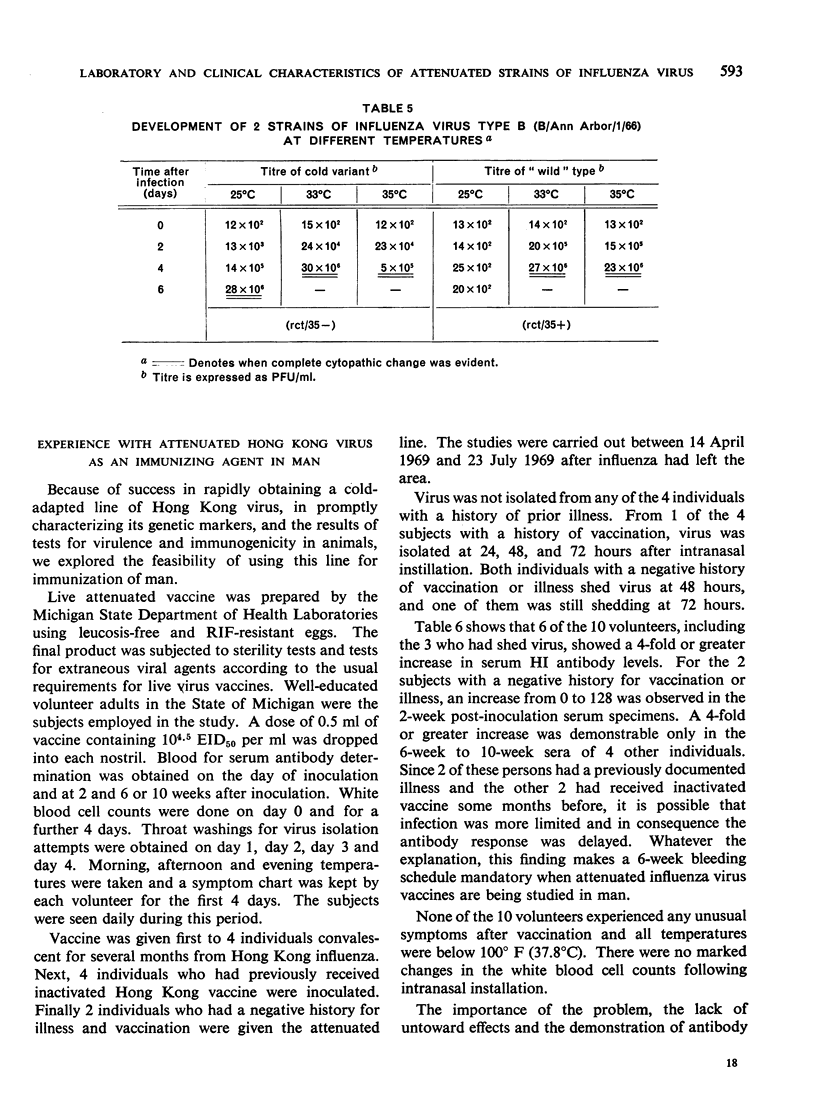
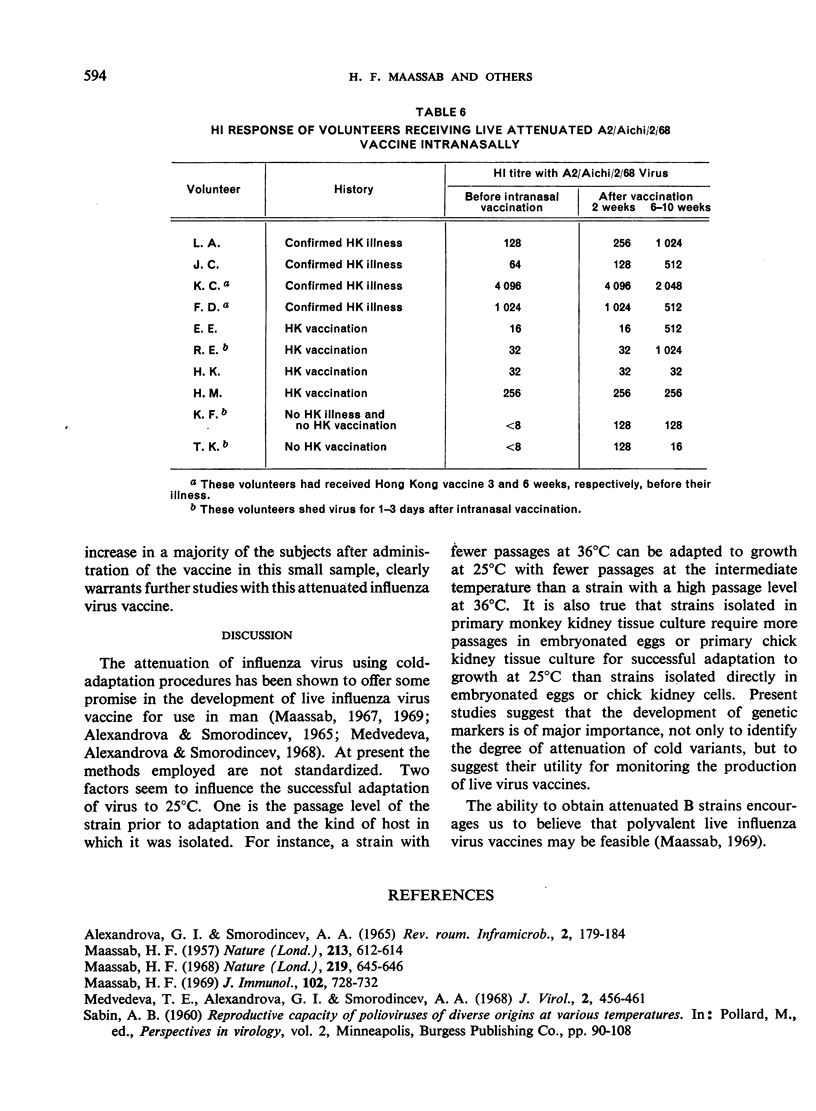
Selected References
These references are in PubMed. This may not be the complete list of references from this article.
- Maassab H. F. Adaptation and growth characteristics of influenza virus at 25 degrees c. Nature. 1967 Feb 11;213(5076):612–614. doi: 10.1038/213612a0. [DOI] [PubMed] [Google Scholar]
- Maassab H. F. Biologic and immunologic characteristics of cold-adapted influenza virus. J Immunol. 1969 Mar;102(3):728–732. [PubMed] [Google Scholar]
- Maassab H. F. Plaque formation of influenza virus at 25 degrees C. Nature. 1968 Aug 10;219(5154):645–646. doi: 10.1038/219645a0. [DOI] [PubMed] [Google Scholar]
- Medvedeva T. E., Alexandrova G. I., Smorodintsev A. A. Differentiation of temperature variants of influenza A2 viruses on the basis of plaque formation. J Virol. 1968 May;2(5):456–460. doi: 10.1128/jvi.2.5.456-460.1968. [DOI] [PMC free article] [PubMed] [Google Scholar]


